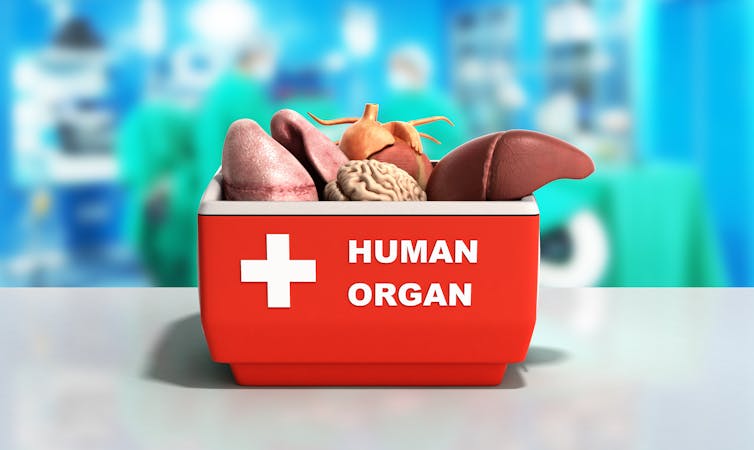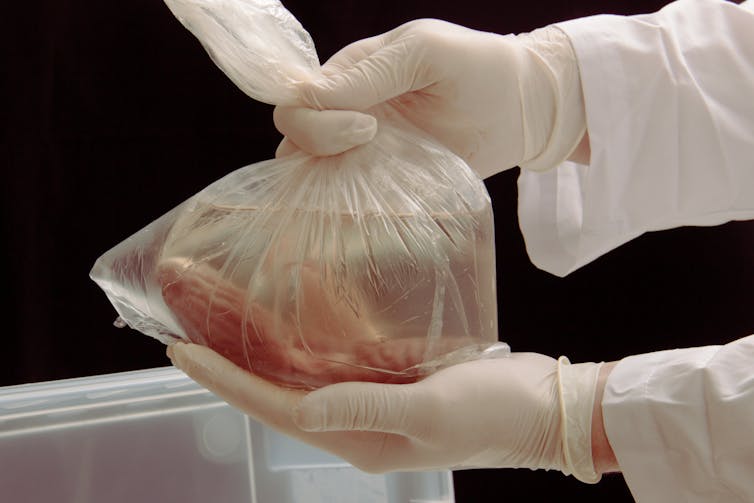Greg Moorlock, University of Warwick
In surely one of the most bizarre stories of recent weeks, former FC Barcelona president, Sandro Rosell, was forced to deny claims that he illegally purchased a human liver for ex-Barcelona defender Eric Abidal in 2012, after a report in Spanish newspaper El Confidencial claimed police had intercepted phone calls of Rosell allegedly admitting the purchase. A statement by FC Barcelona flatly denied the allegations, and pointed out that a Catalan court had shelved an investigation into the matter in 2017. Further form denials were issued by Abidal and the hospital in which he underwent surgery, while Spain’s National Transplant Organisation also came forward to confirm that the operation was performed in accordance with the law.
In this case it appears clear that the transplant was legal, but the incident does shine a spotlight on commercial organ transplantation and the murky worldwide black market for human organs. But what is this trade and how often does it happen?
What is transplant commercialism?
Transplant commercialism involves the buying, selling, or otherwise commodifying of human organs. It is recognised as a serious crime in the vast majority of countries, with the notable exception of Iran.
In practice the term covers a broad spectrum of behaviours. The most troubling cases involve people being trafficked so their organs can be removed. Victims may be held against their will, forced to undergo medical tests, and ultimately operated on without their consent. Thankfully there have not yet been substantiated cases of this occurring in the UK, but we know it happens elsewhere.

shutterstock
More common is so-called “transplant tourism”, which sees patients travel abroad for transplants they might struggle to otherwise obtain quickly. Though illegal payments are not always involved – some might have an overseas relative willing to donate – these foreign trips should set off alarm bells.
The global reach of social media makes it increasingly easy for organs to be offered for sale online. Within two days of joining a Facebook group about organ donation, for example, I was messaged by a man in India offering to sell me his kidney.
It should surprise no one that payment for organ “donation” is often associated with the coercion and exploitation of those in poverty. The Declaration of Istanbul, endorsed by transplant organisations around the world, states clearly that trafficking and transplant tourism “violate the principles of equity, justice and respect for human dignity and should be prohibited”. There is an ongoing academic debate surrounding the ethics of transplant commercialism, but its illegality is clearly established in the laws of most countries.
An unknown frequency
Given that lawbreakers rarely report their own crimes, an accurate picture is difficult to ascertain, but it has been estimated that 5-10% of worldwide organ transplants involve payments. UK figures suggest that nearly 400 patients have received a transplant overseas in the last 16 years, although some of these may have been perfectly legal.
It is also possible that in the UK some donations involve illicit, under-the-table rewards. There are safeguards in place to counter this and the Human Tissue Act 2004 makes this unequivocally illegal. But once again it is difficult to prove anything: if a grateful recipient buys their donor a new car some months after a transplant, who can draw the line between deferred payment and honest generosity?

shutterstock
![]() Inevitably human organs are sometimes in limited supply, so patients on long waiting lists can be tempted to pay for an organ abroad. But when they return to the UK requiring follow up care their doctors will generally have their suspicions. Most medical professionals feel bound by patient confidentiality and do not report their suspicions, but this eliminates one of the few potential methods of detecting and prosecuting this murky underworld. The illegal organ trade is complex and illusive, and without doctors reporting cases it will likely remain so.
Inevitably human organs are sometimes in limited supply, so patients on long waiting lists can be tempted to pay for an organ abroad. But when they return to the UK requiring follow up care their doctors will generally have their suspicions. Most medical professionals feel bound by patient confidentiality and do not report their suspicions, but this eliminates one of the few potential methods of detecting and prosecuting this murky underworld. The illegal organ trade is complex and illusive, and without doctors reporting cases it will likely remain so.
Greg Moorlock, Senior Teaching Fellow, University of Warwick
This article was originally published on The Conversation. Read the original article.
Warning: file_get_contents(https://plusone.google.com/_/+1/fastbutton?url=https%3A%2F%2Fkigalihealth.com%2Fhow-an-ex-barcelona-players-legal-liver-transplant-is-focusing-attention-on-the-human-organ-trade%2F): failed to open stream: HTTP request failed! HTTP/1.0 404 Not Found in /home/kigal4health/public_html/wp-content/themes/goodnews5/goodnews5/framework/functions/posts_share.php on line 151














